- europages
- >
- COMPANIES - SUPPLIERS - SERVICE PROVIDERS
- >
- starch and derivatives
Results for
Starch and derivatives - Import export
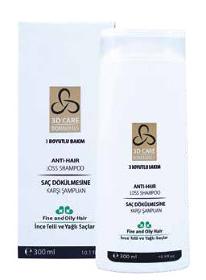
KDY GLOBAL
Turkey
Enriched with Hexapeptide11, biotechnological proteincomplexed minerals, fruit extracts, Vitamin F. Rich content formula provides 3D intense care covering follicle, scalp and hair. Creates a healthy environment for proper hair growth by nourishing the follicle and improving the scalp condition. Protects scalp with antioxidants. Helps balance sebum secretion. Gives natural shine. Cleanses hair gently leaving a fresh feel. Wet hair, massage onto scalp, leave for 12 minutes. Rinse thoroughly. Active Content Hexapeptide11 Betaine Starch Derivatives Sugar Cane Extract Lemon Extract Apple Extract Green Tea Extract Vitamin F Silicon Magnesium Copper Zinc Iron
Request for a quote
IMPERIUM EST LTD
Bulgaria
CBD SATIVA SEEDS OIL very rich in vitamin E and polyunsaturated acids; this oil has remarkable antioxidant qualities for the skin and body. The body’s skin vitamins B1 and B2 give it a high moisturizing and soothing ability, therefore suitable for all skin types, even the most delicate. It does not oil the skin and is easily absorbed. ACTIVITIES CONTAINED IN THE EXTRACTS OF SWEET ORANGES, RICE, CAPER FRUITS AND OLIVE LEAVES: skillfully mixed active ingredients with excellent brightening and brightening action due to the high content of arsenic, which has an increased range of archaic acid. SODIUM HYALURONATE: a mixture of three molecular weights, this acid is an ancient ally of the skin, reduces water evaporation and stimulates collagen production, maintaining the skin’s natural turgor and elasticity. It effectively fights wrinkles’ appearance in high concentration, reducing aging signs and keeping skin hydrated and soft. RICE STARCH: oil derived from fats
Request for a quote
DE SMET ENGINEERS & CONTRACTORS
Belgium
Thanks to its deep knowledge of all unitary operations related to edible oil, sugar and sugar fermentation processes, De Smet Engineers & Contractors is the ideal partner for assisting investors in developing and implementing biochemical production plants and bio-commodities production facilities. DSEC has already successfully built for international key players a betain and several inulin plants based on their proprietary knowhow. Moreover, DSEC’s experience in implementing cogeneration units built along with facilities for the production of fermentable grade sugar (derived from sugar beet, cane and grains) allows the company to fine-tune the overall process set-up in order to achieve ideal conditions with regard to material and energy flows. Notable examples of bio-based chemicals include non food starch, cellulose fibers and cellulose derivates, tall oils, fatty acids and fermentation products such as ethanol and citric acid for which. DSEC is fully qualified to provide the facility that will efficiently generate the required feedstock on an industrial scale. From a technical point of view, almost all industrial materials respectively their building blocks made from fossil resources can be substituted by their bio-based counterparts: • C2 building blocks: ethanol, acetic acid • C3 building blocks: lactic acid, 3-hydroxypropanoic acid, glycerol • C4 building blocks: fumaric acid, succinic acid, butyric acid, 1-butanol • C5 building blocks: itaconic acid, furfural • C6 building blocks: citric acid, glucaric acid, 5-HMF, adipic acid
Request for a quote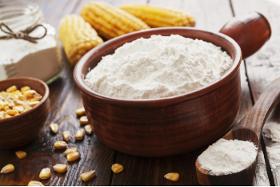
BIRMINGHAM INDUSTRIES (UK, INDIA)
United Kingdom
Cationic starch carries a positive charge over the entire pH range creating their affinity towards negatively charged substrates, such as cellulose, pulp and some synthetic fibres, aqueous suspensions of minerals and slimes and biologically active macromolecules. This starch may be derived from maize and is used primarily as a wet-end starch and mainly used in paper and cardboard forming processes: 1.Increases mechanical strength for better retention of fines and fillers 2.Enables faster drainage and improved sheet formation and production, saving both time and resources. 3.Improves opacity, brightness and stiffness of paper and allows for better printing quality 4.It is also popularly used in the manufacture of disposable diapers (nappies) and personal sanitary products.
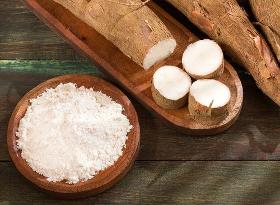
BIRMINGHAM INDUSTRIES (UK, INDIA)
United Kingdom
This starch may be derived from tapioca and is used primarily as a wet-end starch and mainly used in paper and cardboard forming processes: 1.Increases mechanical strength for better retention of fines and fillers 2.Enables faster drainage and improved sheet formation and production, saving both time and resources. 3.Improves opacity, brightness and stiffness of paper and allows for better printing quality. 4.It is also popularly used in the manufacture of disposable diapers (nappies) and personal sanitary products.
Do you sell or make similar products?
Sign up to europages and have your products listed
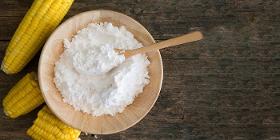
BIRMINGHAM INDUSTRIES (UK, INDIA)
United Kingdom
Spray starch derived from either maize or tapioca is applied by means of spraying and is used primarily in the production of paper, boards, and ply. This modified starch: 1.Increases the strength of ply bonds in boards and plywood. 2.Increases the bending and spring back tendency of boards. 3.Reduces the delamination of plywood and laminated boards.
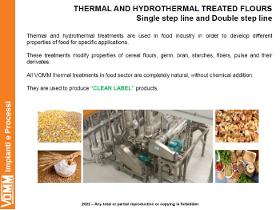
VOMM IMPIANTI E PROCESSI SPA
Italy
Thermal and hydrothermal treatments are used in food industry in order to develop different properties of food for specific applications. These treatments modify properties of cereal flours, germ, bran, starches, fibers, pulse and their derivates. All VOMM thermal treatments in food sector are completely natural, without chemical addition. They are used to produce “CLEAN LABEL” products. Pilot plant is available in VOMM R&D department in Rozzano.
Request for a quoteResults for
Starch and derivatives - Import exportNumber of results
8 ProductsCompany type